Cover Letters: Just How Important Are They?
ResumeGo, a company that offers resume writing services, conducted a field experiment involving 7,287 job application submissions and a survey of 236 hiring professionals to get down to the bottom of exactly how integral cover letters are to job search success and what exactly employers value in them.

New research finds that applications with tailored cover letters yield just over 50% more interviews compared to those without.
Do cover letters matter at all? And if they do, exactly how important are they? Do I need to tailor my cover letter to each individual job opening? These are some of the most common questions that job applicants ask — and for good reason. After spending countless hours refining their resume and searching for job openings, most people feel too run-down to now write another whole letter summarizing why they should get the job. Whether it’s worth their effort to do so remains unknown. ResumeGo recently decided to conduct a field experiment in order to answer all of these questions. While other studies on the effectiveness of cover letters have been conducted in the past, none of them have involved an extensive field experiment using real life data from job application submissions. ResumeGo also surveyed a number of recruiters and hiring managers in order to assess their opinions on the matter. The results from our two-part research will hopefully be able to help job seekers decide what course of action makes the most sense for them when it comes to writing cover letters for their job search.Field Experiment
In the field experiment that was conducted between July 15, 2019 and January 10, 2020, a total of 7,287 fictitious job applications were submitted to job openings found on job boards such as ZipRecruiter, Glassdoor, and Indeed. Each of these applications was assigned to one of the following groups: – Group 1: These job applications did not include a cover letter at all. Whenever there was a field for it, it was either left blank or filled in simply with “N/A”. – Group 2: These job applications included a well-composed, but generic, cover letter that provided a short summary of the candidate’s qualifications. – Group 3: These job applications included a cover letter tailored to the exact job being applied for, providing details on how the candidate would be a great fit for the company culture and requirements of the job description. For each of these groups, the number of interview callbacks received within 30 days of the application submission date were tallied. Below are the results: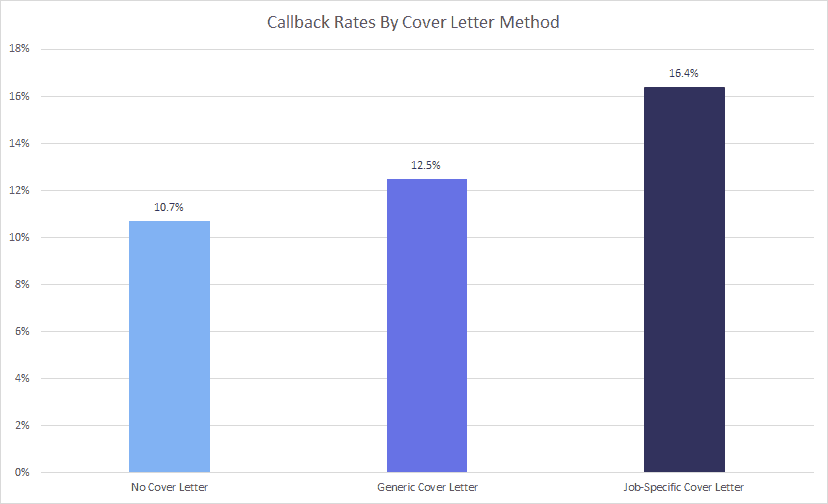
Survey of Recruiters and Hiring Managers
In addition to the field experiment that was performed, ResumeGo conducted a survey of 236 recruiters and hiring managers. Each survey contained the following YES or NO questions:How much time do you spend reading a cover letter for a typical job application?
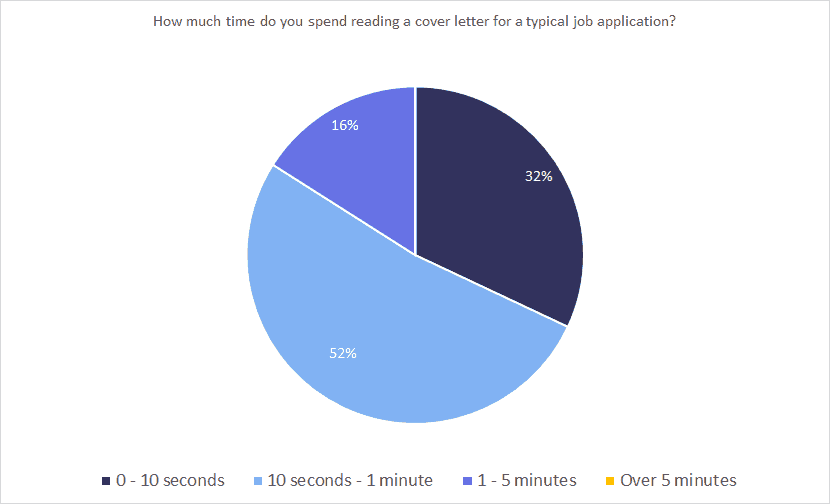
If you are someone who takes the time to read cover letters, what are some reasons why?
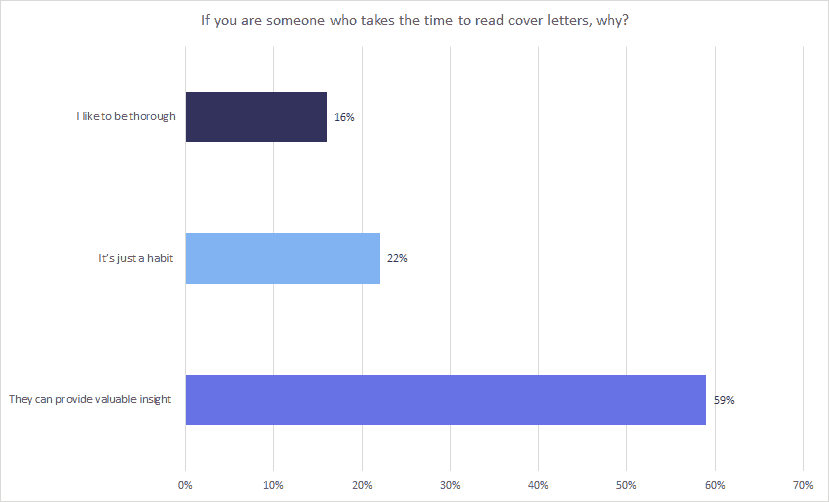
If you are someone who does not take the time to read cover letters, what are some reasons why?
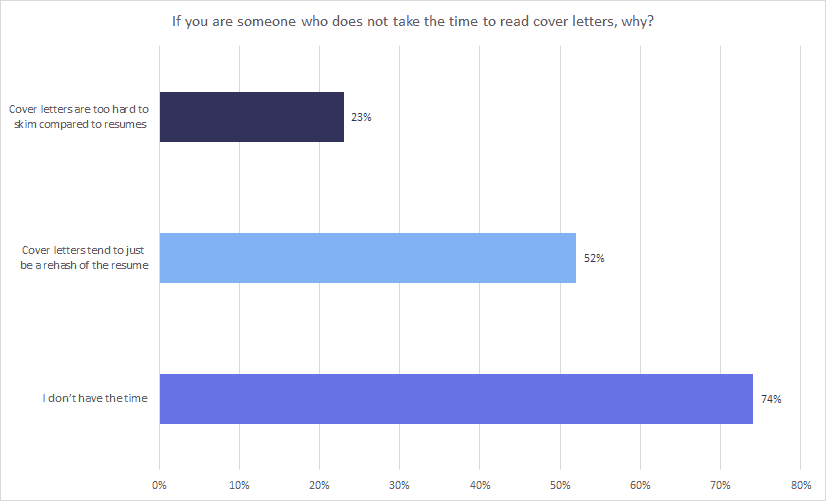
How important is it to avoid using a generic cover letter and tailor each cover letter to the job description?
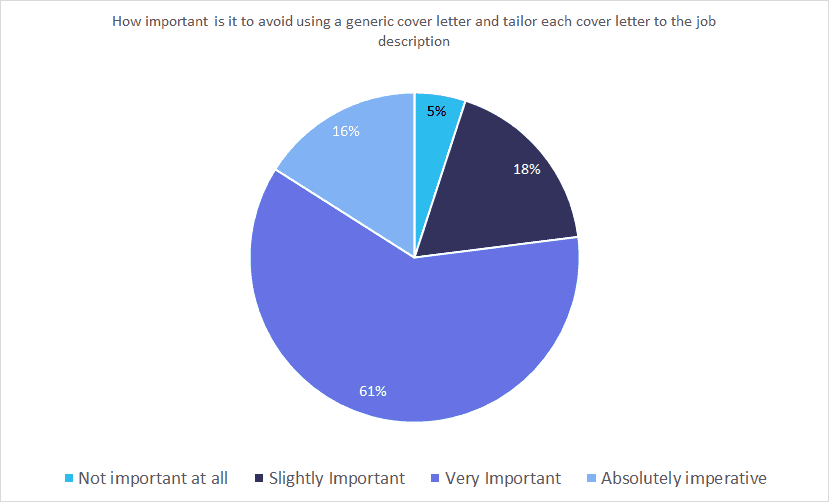
What are the most common things you see on cover letters that would hurt an applicant’s chances for the job?
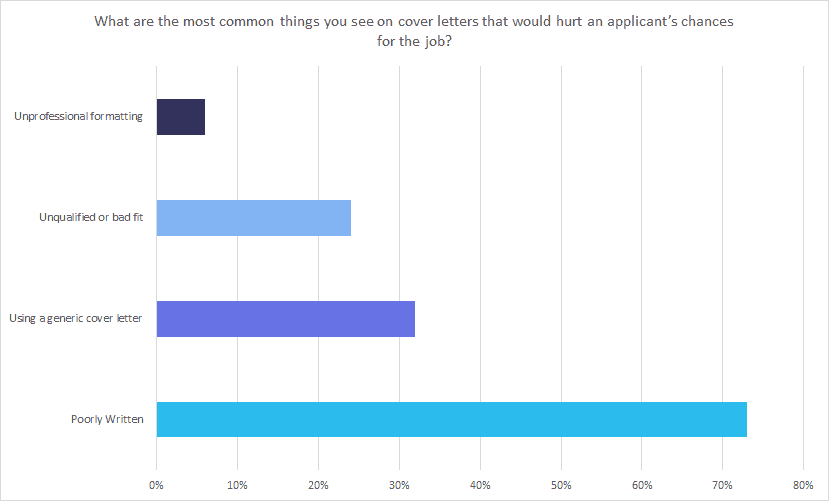
Conclusion
While the value of cover letters has always been overshadowed by the importance of resumes, the results of the field experiment conducted suggest that submitting a cover letter still has an overall positive impact on a job seeker’s interview chances. In fact, applications that included cover letters tailored specifically to the job at hand had a 53% higher callback rate than applications with no cover letter at all, suggesting how important it is for job seekers to submit job-specific cover letters. Several of the survey responses from hiring professionals also backed the importance of tailored cover letters. 81% of surveyed professionals valued tailored cover letters significantly over generic ones. In the more open-ended section of the survey, when asked “How important is it to avoid using a generic cover letter and tailor each cover letter to the job description?”, a majority of respondents said it was “very important” to do so. Using a generic cover letter is also one of the most common things hiring managers said would “hurt an applicant’s chances for the job.” Debunking the notion that employers simply don’t read cover letters, the survey results showed that the overwhelming majority (87%) of hiring professionals do read cover letters and the majority of them even use it in their decision-making.Are you a hiring professional? Share your expertise!
More surveys are to come and the more insight the better. We’re welcoming recruiters and hiring professionals to shed light on their hiring habits and preferences.


See other resume research we’ve done.
Data is used for everything, so why not for resume writing? See more surveys and field experiments we’ve conducted over the years that have influenced the way resumes and other job documents are written.
More resources for your resume and job search
Whether you’re a career expert or a total beginner, there’s always more to learn. Use these resources to level up your resume and build your career.


